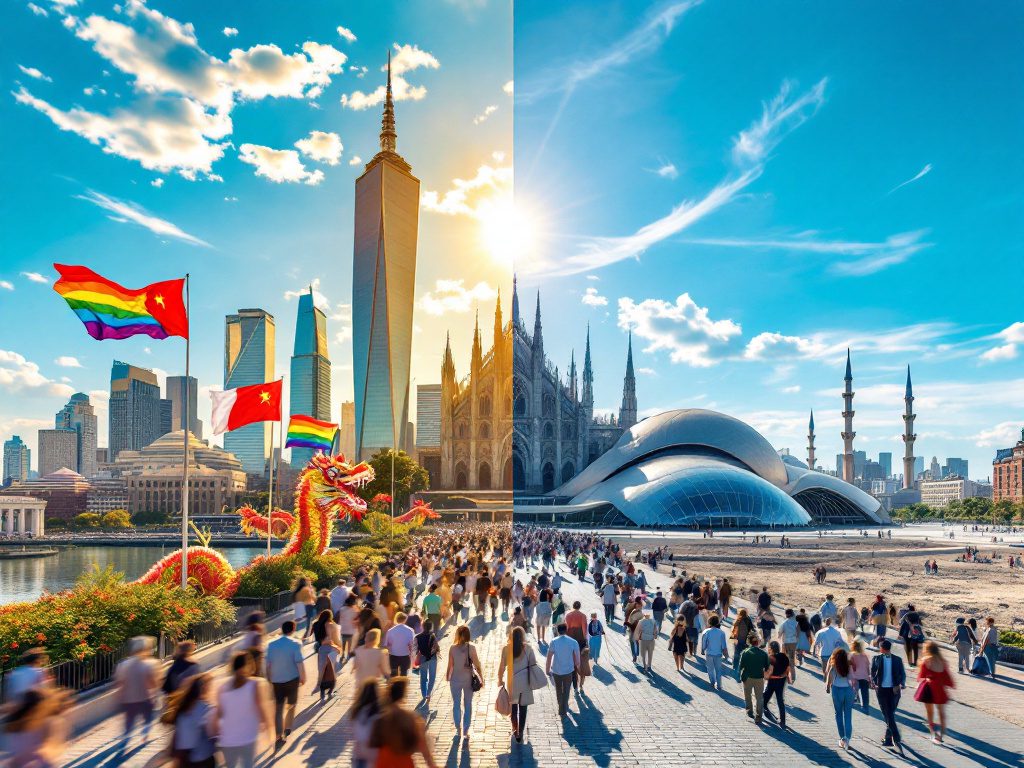The Collision of History and Policy on Live TV
Late-night cable news rarely shies from dramatic moments, but Wednesday’s episode of CNN’s “NewsNight with Abby Phillip” proved extraordinary. In a segment intended to decipher the future of immigration under potential Trump-era policies, two political heavyweights ignited a controversy that spiraled from policy to personal and from historical to deeply emotional.
Republican strategist Shermichael Singleton and “The View” co-host Ana Navarro didn’t just debate—they collided. When Navarro referenced Senator Marco Rubio’s grandfather’s complicated immigration history and drew parallels between past and present experiences of entering the United States, Singleton responded with vehemence, challenging a lineage of analogies that have often surfaced in American discourse. Singleton insisted, “They are not the same as Black people who were brought here against our will. They decided to walk their butts across the border.”
America’s ongoing struggle to contextualize its history within contemporary policy debates played out viscerally in front of millions. When does an analogy illuminate, and when does it distort? Is the invocation of slavery in modern-day immigration debates a bridge to empathy or a false equivalence that muddies the waters?
Beyond Analogy: Hardline Immigration Policy Meets Historical Memory
The sparks between Singleton and Navarro reveal a far deeper fault line that divides the nation—one not just over asylum seekers, border fences, or economic resources, but over whose history is allowed to shape the future. Singleton adopted a stringent framework: “If you come to this country illegally, you are going home. Simple as that. We do not have unlimited resources in this country to take care of other people.”
On its face, Singleton’s perspective fits comfortably with the hard-right orthodoxy ascendant in Trump-era Republicanism—tough talk, zero tolerance, the sanctity of finite American resources. Many Americans, battered by years of economic precarity and political polarization, might find this clarity appealing. But history, which Singleton himself invoked, rarely yields such clean lines.
During the exchange, Navarro reminded viewers that high-profile Republican politicians—people like Rubio—personally benefit from nuanced immigration policies, such as Temporary Protected Status (TPS). “TPS is not amnesty. It’s humanitarian,” Navarro argued, referencing protections offered to those fleeing violence, disaster, or dictatorship. The tension became apparent when she broadened the argument to highlight how America’s ‘immigration debate’ isn’t just about law but also about legacy and the country’s moral compass.
“The idea that enforcing federal immigration laws is indistinguishable from perpetuating the atrocity of slavery is as historically illiterate as it is deeply offensive. But when the stakes are this high, shouldn’t the debate also center on what kind of nation we hope to be—not just what borders we defend?”
Harvard historian Annette Gordon-Reed has emphasized, “Slavery was a uniquely dehumanizing institution—the systematic, legal destruction of liberty and personhood. To conflate it too casually with border enforcement, we risk undermining the gravity of both historical memory and contemporary human rights.” Yet, as Navarro tried to clarify, historical analogies aren’t merely rhetorical flourishes; they’re often attempts to connect disparate experiences of suffering and exclusion, especially in a melting pot society.
What’s at Stake: Policy, Empathy, and the Limits of Debate
Why does this debate matter so intensely? Because the way we talk about immigration—who belongs, who “deserves” protection, who gets a shot at the American dream—shapes not only our laws but our social fabric. Saying “they are not the same as Black people who were brought here against our will,” as Singleton did, correctly draws a sharp line between the trauma of chattel slavery and the agency of migration—yet it also risks narrowing the scope of American empathy to only the most easily defensible cases.
A 2023 Pew Research study found that 73% of Americans regard “immigration as beneficial to our country overall,” yet views remain sharply divided along partisan lines. These entrenched stances reflect more than policy; they’re a referendum on national identity. Conservative hardliners frame the border as an existential threat, employing rhetoric that locks policy into a punitive mold. As history has repeatedly shown, such rigidness often overlooks the nuances that make America’s story so complex and compelling.
In the chaotic moments before moderator Abby Phillip was forced to cut to commercial, the panelists seemed to embody a larger American struggle: the contest between punitive certainty and the discomfort of historical reckoning. Singleton wanted clarity and boundaries. Navarro asked for compassion and context. Both, in their own ways, reflected the divides running through coffee shops, boardrooms, and family dinners in this age of distrust and disunity.
Navigating Discomfort and Building a Better Conversation
Where does that leave us? What’s needed isn’t less dialogue—it’s better dialogue. A healthy democracy thrives not when it papers over difficult analogies, but when it interrogates them. Harvard economist Raj Chetty notes, “America’s greatest strength has always been its willingness to learn from failure—to widen the circle of belonging as its population grows more diverse.” Limiting the immigration debate to black-and-white binaries—the legal versus illegal, ‘us’ versus ‘them’—shortchanges both historical truth and the fullness of American possibility.
Progress demands we aspire to a politics that’s more reflective than reactive, more historically rooted than opportunistically invoked. It’s unreasonable to suggest that immigration enforcement is akin to slavery, but it’s equally unfair to bulldoze over the various paths by which Americans, old and new, have whispered or shouted their way into citizenship. Each had a story, a struggle, and a stake in the American dream.
When the echoes of slavery or family migration rise in debate, it’s not always hyperbole—it’s often a call to recall the many threads, painful and proud, that have woven the American tapestry. Addressing policy with dignity doesn’t dilute justice. It amplifies it.
As debates like the one on CNN spill out into public life, the question remains: Will we chase slogans and soundbites, or will we face our history honestly—and imagine a future generous enough to honor it?

